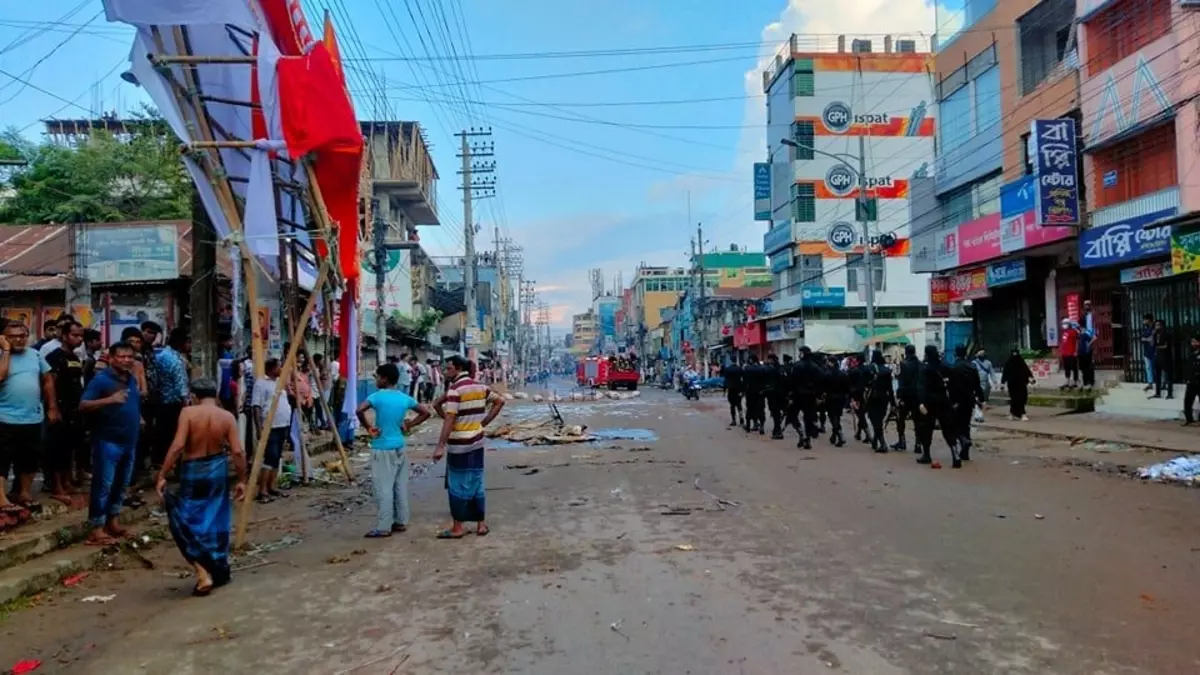
Tripura on the same path as Gujarat?
text_fieldsThe recent attacks against Hindus in Bangladesh during the week of Durga Puja, starting from October 13, have been widely condemned. International forums, including the United Nations, have come forth against it. India, too, intervened in the matter. It was discussed in detail in our editorial dated October 21. The anti-Hindu attacks in Bangladesh are unfortunate and condemnable. The approach taken by the Bangladesh government in response to the violence was also noted. The law enforcement agencies geared up to catch the attackers and even shoot them in some places. Prime Minister Hasina Wajid met Hindu leaders directly and heard their complaints. Anti-violence and solidarity rallies were held across the country under the leadership of the ruling party. The country as a whole declared that the security and self-esteem of minorities are important. However, it is worrying that the Sangh Parivar movements in India are taking the violence in Bangladesh as an excuse for the systematic killing of Muslims in India. The Vishva Hindu Parishad-led protests in Tripura, allegedly against the violence in Bangladesh, have turned into a scheme for state-wide anti-Muslim attacks.
In Tripura, which shares its border with Bangladesh, Muslims make up only 8.6 per cent of the population. It has a population that has lived in religious harmony for ages. However, the Muslim community in Tripura has been extremely insecure since the BJP government led by Biplab Kumar Deb came to power in the last elections. A good percentage of the people in the state speak Bengali. However, only Bengali-speaking Muslims have to constantly prove that they are not Bangladeshis. After the BJP came to power in Assam and some other north-eastern states, the peaceful atmosphere in the region has been disrupted for some time. In Assam, the government and the chief minister are directly leading the anti-Muslim campaign. The murder by shooting of Muslim farmers, as part of government land eviction and a government photographer dancing over the dead body of one of them were discussed even at international level. In another incident, Assam and Mizoram police forces clashed, killing six police officers.
Violence against foreigners has also increased in Meghalaya. Attempts to evict the centuries-old Dalit Sikh community in Shillong recently caused a great deal of controversy. Attempts to find a political solution to the problems in Nagaland stand stalled mid-way. The separatist movement in Nagaland is unwilling to give up its two demands of its own flag and constitution. Likewise, the whole region is going to unrest. One could wonder whether the Sangh Parivar is planning to reap political benefits by sowing unrest. The ongoing anti-Muslim attacks in Tripura could also be part of this agenda.
It has been almost a week since the violence in Tripura began over the violence in Bangladesh. Instances of violence were reported in Panisagar, Agartala, Udaipur, Krishnanagar and Dharmanagar. More than a dozen mosques have already been demolished. Several houses were destroyed by the attackers. In Roa, Panisagar, two women have lodged a complaint with the police alleging that Vishva Hindu Parishad attackers broke into their house and raped them. News of house demolitions and fires are being reported from new areas every day. However, there is no serious intervention on the part of the government to curb the violence. The Tripura unit of the Jamiat Ulema-e-Hind and the Students' Islamic Organization have come out strongly against the violence and government inaction. Probably because it is so far away from the national capital, the issue has not been discussed seriously even among human rights activists in Delhi. One cannot help doubting whether the ground is being set for a silent genocide in Tripura. It will be a great tragedy if another Gujarat repeats itself in Tripura as a result of absolute silence and laxity. It is time the government, political parties, human rights forums and community organizations woke up and acted.

























